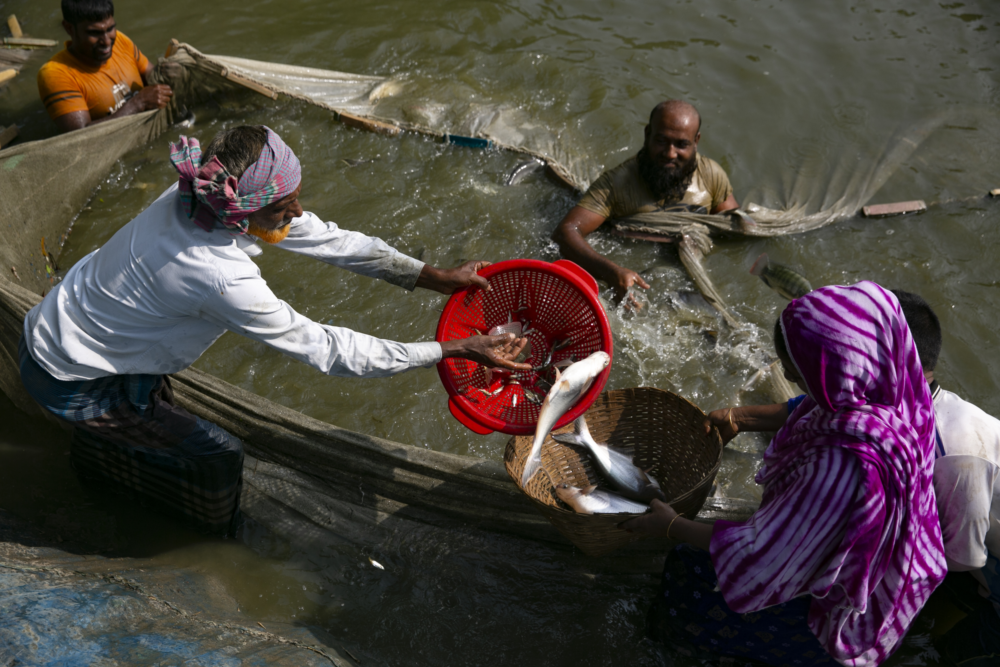Bangladesh: Fish and Poultry Food Safety Economics

Project Description
Recent increases in the production of farmed fish in Bangladesh have been accompanied by a strengthening of the country’s food safety regulatory structure. This project, led by Madan Dey at Texas State University, used food safety economics and microbiology research to support data-driven food safety policies and practices in aquaculture. The team assessed food safety knowledge, attitudes, and practices among consumers and value chain actors; evaluated consumer demand for safer fish and the potential economic impact of food safety practices on production costs for small-scale fish farms; developed training materials to support the adoption of Good Aquacultural Practices; and engaged government stakeholders on the development of additional training resources and certification programs.
Co-PIs: Mohammad Saidur Rahman, Md. Akhtaruzzaman, Md. Abdul Alim, Samina Luthfa, K.H.M. Nazmul Hussain Nazir, and Pratheesh Sudhakaran

